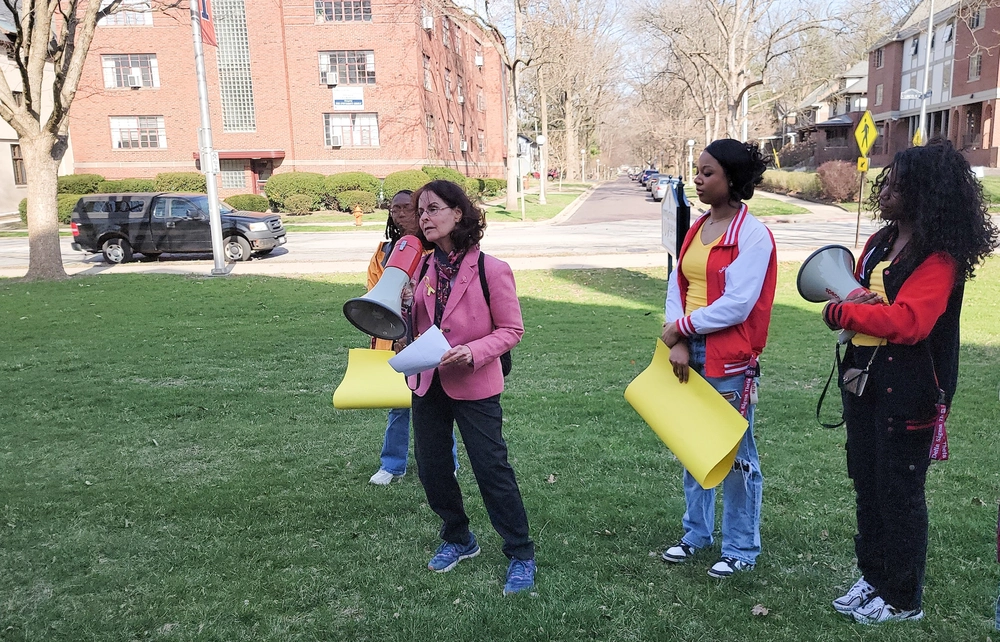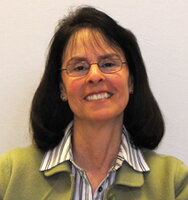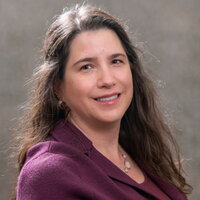
Professor Benita Katzenellenbogen has taught and mentored students, and researched women’s health throughout her career at the University of Illinois Urbana-Champaign, focusing on issues such as breast cancer and endometriosis. While much of her work is done in the lab and through research, she realizes how important it is to spread awareness about these diseases.
That’s why Katzenellenbogen, the Swanlund Professor of Molecular and Integrative Physiology, joined the U of I’s Alpha Nu chapter of the Delta Sigma Theta sorority’s recent Walk for Endometriosis to spread awareness about the chronic disease, which affects roughly 10 percent of reproductive age women across the world, according to the World Health Organization.
Endometriosis causes potentially life-altering symptoms such as painful periods, abdominal pain, pelvic pain, headaches, and reduced fertility. Though many people are affected by this disease, there is much work to be done to create greater awareness and fund research to work towards a cure for the disease, organizers said. The walk was also meant to raise money for the Endometriosis Foundation of America and highlight specialists in the field.
Along with Katzenellenbogen, the School of Molecular & Cellular Biology is home to several faculty who study reproductive biology and endocrinology, including Lori Raetzman, a professor of molecular and integrative physiology who researches neurological and behavioral disorders, reproductive diseases, infertility, and menopause, and Milan Bagchi, the Deborah Paul Professor of Molecular & Cellular Biology and director of the School of Molecular & Cellular Biology, who also studies cancer, reproductive diseases, infertility, and menopause.
The walk started at McKinley Health Center and ended at the Illini Union. Katzenellenbogen kicked off the walk by talking about her experience as a women’s health researcher. She thanked the sorority for arranging the walk and talked about how endometriosis cuts across demographics.
“We need to educate young people and also older people and even medical doctors also about the prevalence of endometriosis so it can be detected and treated earlier and more effectively,” Katzenellenbogen said. “Endometriosis is driven by the hormone estrogen and also by inflammation, and we and others at Illinois and elsewhere are doing research to develop more effective treatments for endometriosis so as to improve fertility and reduce abdominal and pelvic pain, and headaches and fatigue that often are associated with endometriosis.”
Katzenellenbogen has found that many women go undiagnosed due to lack of information and understanding by patients and medical professionals. Once women are diagnosed, they may be eligible to have the endometriosis removed surgically to protect their fertility and lessen their pain, which can be life-changing.
Katzenellenbogen’s research team continues to emphasize hormone research and women’s health outreach, which aids in the search for better treatment of the disease.
Among the walk attendees were sorority sisters, partners, family, and friends of sorority members, faculty members and students researching the disease, and attendees wearing small yellow ribbons to represent endometriosis awareness.
Jae’da Thompson, senior in interdisciplinary health, helped lead the event with her fellow sorority sisters. She explained that the sorority has done fundraising before, but this was their first walk and first event for endometriosis. The result of their efforts surpassed their overall fundraising goal of $600.
“One of our key initiatives in our sorority is physical and mental health awareness,” Thompson said. “We felt this walk tied into that and could help bring awareness to endometriosis during March, which is Endometriosis Awareness Month.”


